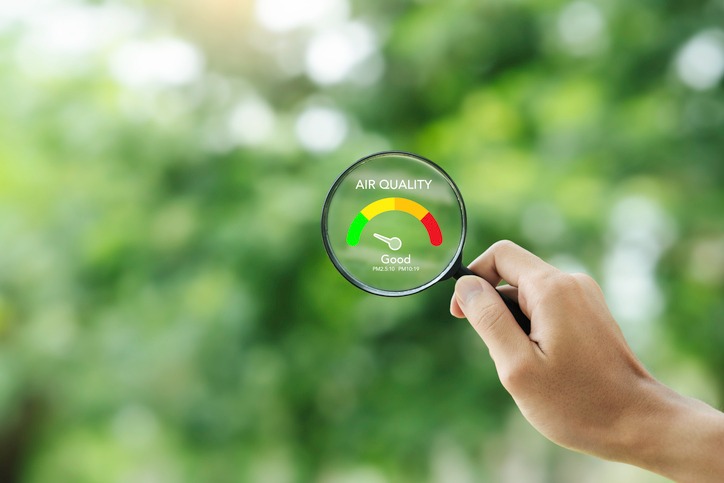Your home's indoor air quality has a significant impact on the health, wellness, and overall comfort of you and your family. Pet dander, mold spores, carbon monoxide, and other indoor air pollutants can cause symptoms such as headaches, coughing, eye, nose, and throat inflammation, skin irritation, painful breathing, bronchitis, and more. We know that sounds unpleasant, but don't panic. With some knowledge and a few preventative measures, you can take steps to improve your home's indoor air quality. Below, Spoor's Heating & Air Conditioning outlines nine easy ways to improve your home's indoor air quality!
Spoor's Heating & Air Conditioning is an HVAC company offering indoor air quality services in Auburn, California. Contact us today to learn more or schedule service!

Change Your Air Filters Regularly
The air filters in your home's heating and cooling system are responsible for filtering out indoor air pollutants such as dust, pollen, pet dander, and other small particles. As your HVAC system's air filters do their job and trap particulate matter to prevent it from circulating, it will slowly become more and more clogged until it needs to be replaced. A clogged air filter will reduce your HVAC system's efficiency and lower your home's indoor air quality. Ideally, you should change your HVAC's air filters every 90 days.
Use Cooking Vents
Kitchens produce a large quantity of a home's indoor air pollutants. Electric burners and gas stoves, in particular, release harmful air pollutants such as nitrogen dioxide and carbon monoxide. Accordingly, you should always be sure to turn on your kitchen's cooking vents to help filter these harmful air pollutants and prevent them from circulating throughout your home.
Avoid Burning Things In The Home
Another way to improve the air quality in your home is to avoid burning things indoors. Carbon monoxide and other harmful contaminants are released into the air when you use gas appliances or burn candles, wood, cigarettes, and other materials inside your home. Most homeowners will want to use candles and gas appliances every once in a while, just try to limit usage or use air-purifying devices when you do burn things indoors.
Vacuum & Dust Often
Cleaning often can help promote better indoor air quality. Vacuuming regularly will improve your home's indoor air quality by removing dust, dander, and other particles that accumulate on your home's floors and rugs. Dusting before vacuuming is a great way to remove a portion of the particles that have accumulated on your home's surfaces while knocking the rest to the floor, where the vacuum can pick them up.
Use Natural Cleaners
Many conventional household cleaners contain harsh chemicals that cannot only remain on your home's surfaces but also circulate through the air. Switching to natural household cleaners will contribute to a healthier home environment for your family and promote better indoor air quality. Next time you're buying cleaning products for your home, look for products labeled "green" or "eco-friendly."
Get Some Houseplants
Some houseplants can act as natural air purifiers for your home. Most people know that when a plant photosynthesizes, it pulls in carbon dioxide and releases fresh oxygen. However, plants are able to remove other air pollutants as well. House plants such as peace lilies, philodendrons, chrysanthemums, spider plants, snake plants, and aloe vera are especially effective at improving indoor air quality by removing gaseous contaminants from your home's air.
Use An Air Purifier
Much like how houseplants can help purify your home's air, an air purifier can do the same. Air purifiers are portable air-cleaning devices designed to pull in air, remove contaminants, and release fresh air. An air purification device can significantly improve your home's indoor air quality.
Control Humidity Levels
A home's humidity level has a direct impact on its inhabitants' comfort and indoor air quality. High humidity levels make your home feel musty and moist and can increase the likelihood of mold growth. A dehumidifier can help manage your home's humidity levels and improve your indoor air quality.
Schedule Routine HVAC Maintenance
Finally, scheduling routine HVAC maintenance is one of the easiest ways to improve your home's indoor air quality. Spoors Heating & Air Conditioning offers an effective and affordable planned HVAC maintenance program. Spoor's Home Comfort Club is designed to keep your home's HVAC system running smoothly. During maintenance, our HVAC technicians will change your system's air filter, inspect your ductwork, and take the necessary steps to keep your home's air fresh and clean.
